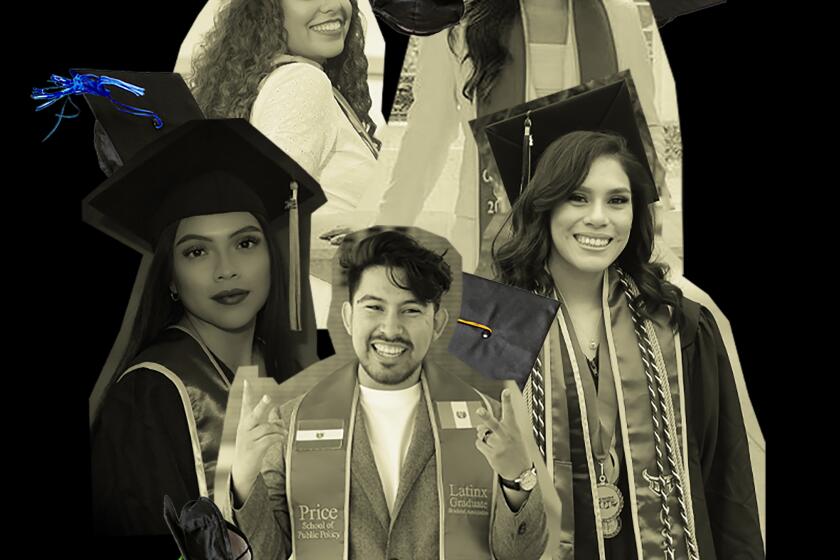
California has three of the top 10 metropolitan areas with the highest number of Latinos with advanced degrees, according to a new Pew Research Center analysis.
The metro areas of Los Angeles, San Francisco and Riverside all place within the top 10. Texas is the only other state with three metro areas on the list.
Los Angeles-Long Beach-Anaheim ranks third on the number of Latinos with advanced degrees in metropolitan areas, trailing behind New York-Newark-Jersey City (first) and Miami-Fort Lauderdale-West Palm Beach (second).
For more than two decades, Latinos have taken huge leaps in attaining master’s and doctoral degrees. Nearly 2.5 million Latinos held advanced degrees in 2021, compared with only 710,000 in 2000.
Nearly half of all Latinos with graduate degrees live in 10 metro areas.
Many students are embarking on an exciting yet unfamiliar journey: their first year of college. There are particular challenges for first-generation students.
Audrey Dow, senior vice president at the Campaign for College Opportunity, a nonprofit organization says the ranking “makes sense,” as Los Angeles County is home to various higher education institutions.
“Los Angeles also boasts several universities that offer advanced degrees, including five California State University campuses within L.A. County alone, a UC campus [UCLA] and several private, independent colleges and universities like USC, LMU, the Claremont Graduate School, and more,” Dow said.
“Several of these institutions are Hispanic-Serving Institutions [a federal designation] and are working exceptionally hard to recruit and graduate Latino students who have been traditionally underserved and underrepresented in higher education. While there is much more work to do, progress has been made,” she added.
According to a recent analysis from Pew Research, 78% of U.S. Hispanics say it is not necessary to speak Spanish in order to be considered Hispanic. Within the group of Latinos who don’t speak Spanish, however, 54% say they have been shamed because of it.
San Francisco-Oakland-Hayward and Riverside-San Bernardino-Ontario hold the ninth and 10th spots, respectively.
Californian metro areas combined are home to 11%, or 290,000, of Latinos with advanced degrees.
Despite the increase of Latinos with graduate degrees, the total number accounts for only 8% of all advanced degree holders, even though Latinos make up almost 20% of the U.S. population,
The analysis also highlights the growing number of Latina women with advanced degrees, who hold 290,000 more degrees than men.
More to Read
The Latinx experience chronicled
Get the Latinx Files newsletter for stories that capture the multitudes within our communities.
You may occasionally receive promotional content from the Los Angeles Times.










